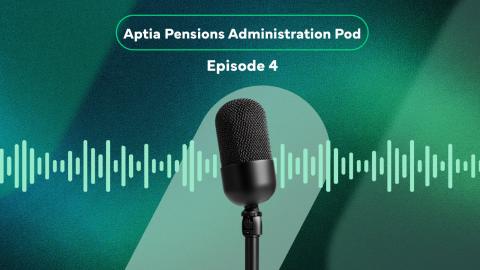Heed the Pensions Ombudsman: no more delays on GMPE and Lloyds 3

The Pensions Ombudsman has signalled trustees need to complete Guaranteed Minimum Pension equalisation (GMPE) – and that includes Lloyds 3 cases.
In one of his first determinations on GMPE, the Ombudsman, Dominic Harris, partly upheld Mr N’s complaint against the trustee of a carmaker’s pension scheme. Mr N complained about, among other things, the scheme’s record-keeping and the proposed schedule for completing its GMPE exercise.
Harris’s ruling is important for four main reasons:
- He put down a marker that GMPE could take a reasonable amount of time – but that unnecessary delays aren’t acceptable
- Mr N’s case was based on the third Lloyds legal judgment, concerning past transfers out, which many schemes haven’t even started responding to
- The ruling on GMPE delays could prompt The Pensions Regulator (TPR) to take a greater interest in GMPE, and trustees who haven’t started working on Lloyds 3 should do so
- The award of £500 to Mr N for distress and inconvenience once again highlighted the need for good communication
First, let’s look at the basics of the case.
The Ombudsman broadly supported the trustee
Mr N wrote to the scheme’s manager in December 2020 shortly after the Lloyds 3 judgment clarified aspects of past transfers out. Mr N said he understood there had been a ruling covering people who transferred out of final salary schemes in the 1990s. He asked for calculations for his GMP when he transferred out.
Correspondence then went back and forth, and Mr N complained that the scheme seemed to have no credible plan for taking action in light of GMP legislation. He also complained about missing records and bad communication.
In his decision last month, Harris broadly supported the trustee’s position – that any top-up payment linked to Mr N’s previous transfer value from the scheme would only be clear when the scheme finished its GMPE project.
GMPE projects shouldn’t have unreasonable delays
Harris noted that the scheme was under “no legal requirement” to finish the review by a certain time, but we think the Ombudsman’s other remarks about timing are significant (emphasis ours):
“This is a difficult and complicated project, and it is important to ensure it is carried out correctly. Therefore, although it should not be unnecessarily delayed, it is understandable that it will take a reasonable period of time to implement. I do not find that the project has, at this point, been unreasonably delayed.”
It’s nearly seven years since the first GMPE judgment and more than four years since Lloyds 3. And we are now seeing members complaining to the Ombudsman about how long schemes are taking to remove GMP-related benefit inequalities and settle liabilities. How long will the Ombudsman bear with schemes that have no plans for GMPE and/or Lloyds 3?
Think about what ‘unnecessary’ means
In that context, trustees should consider what constitutes an unnecessary delay and a reasonable (or unreasonable) period of time. Many pension schemes risk falling into the first category, particularly if they haven’t started the work or put plans in place with the scheme administrator.
As a reminder, GMPE has two phases:
- Identifying members or previous members with GMP accrued between 17 May 1990 and 5 April 1997
- Reworking historical pension data to remove the GMP-related inequalities, telling members about changes, and managing extra (equalised) payments from the scheme
Some schemes haven’t completed the first phase yet, and for them this is an increasingly urgent matter.
Pension schemes have been given leeway on GMPE, and – as often happens with no deadline – things have drifted. However, the Ombudsman is now pretty clear that trustees should complete GMPE as soon as possible, and without any unnecessary delay. What is an unnecessary delay? We should err on the safe side.
TPR's drive for good data and pensions dashboards
There is every reason to think that TPR could also take a greater interest in GMPE and start pushing schemes to complete following the Ombudsman’s judgment. For example, questions on GMPE progress could be added to scheme returns.
This is especially true because GMPE can be seen as a data problem – and TPR is clear that it wants pension schemes to get their data in order. The regulator has set out various requirements about data, including in its recent data strategy and in revisions to the scheme return for defined benefit and hybrid schemes .
The biggest regulatory event on the horizon for pension schemes is pensions dashboards. And dashboards are a GMPE issue too because if you connect to the dashboards ecosystem without completing GMPE, you will risk showing your members inaccurate information about their pensions. This could create confusion, queries and potentially complaints.
Lloyds 3 work is slipping through the cracks
It’s also important to note that Mr N’s complaint, and the Ombudsman’s ruling, was in light of the Lloyds 3 judgment. This ruling tied up many of the loose ends about GMPE and put pension schemes in a clearer position to get on with addressing inequalities related to past transfers.
Even schemes that have made progress with addressing GMPE for members where the schemes still hold liabilities have often put off addressing past transfers that were clarified under Lloyds 3. This should no longer be the case and Lloyds 3 shouldn’t take a backseat.
The Ombudsman’s determination highlights the need to get on with all aspects of GMPE, and we’ll be looking at Lloyds 3 in greater detail in another insight soon.
Communication, communication …
Finally, let’s look at the Ombudsman’s ruling that the trustee should pay Mr N £500 for poor communication.
Harris didn’t find much wrong with the scheme’s approach, but he was unhappy about its failure to keep Mr N updated as agreed. This amounted to maladministration and caused Mr N distress and inconvenience, the Ombudsman concluded.
As we’ve said before, communication with your members is vital, but so often this lets schemes down. That was the case here.
It’s time for us all to put GMPE and Lloyds 3 to bed
The Ombudsman’s determination should be a wake-up call for trustees to refocus on GMPE – and we expect scrutiny of schemes without plans for addressing GMPE and Lloyds 3 to intensify.
Authorities have raised an eyebrow, but there are other reasons for our industry to get GMPE done. Some members may be concerned about inequalities or waiting for schemes to tell them about associated benefit uplifts. And if you are one of the many schemes looking at derisking options, you will need to address GMPE to ensure an orderly process, avoid holdups and minimise costs.
As ever, talk to your administrator if you want to discuss your options for completing GMPE. And look out for our upcoming insight on addressing Lloyds 3.



